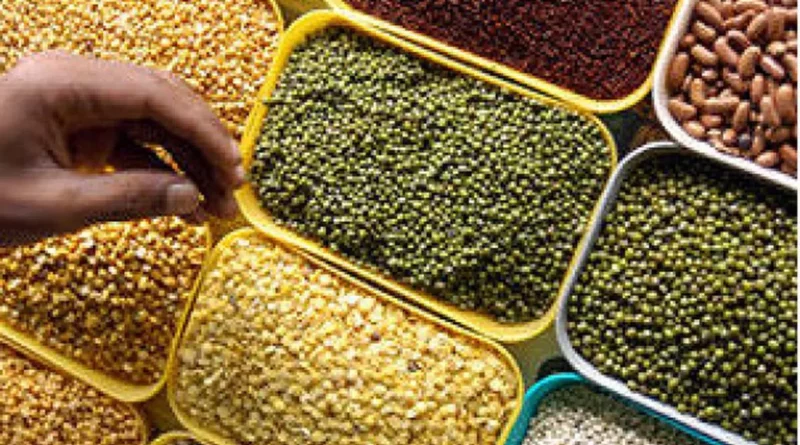Yogi govt gears up to make UP self-sufficient in pulses production by the year 2027
The Yogi government has prepared a comprehensive strategy to make Uttar Pradesh self-sufficient in pulses’ production by the year 2026–2027. The measures include expanding the cultivation area of pulses and increasing its production from 14 to 16 quintals per hectare through use of improved seeds and high-yielding varieties within the given timeframe.
It is noteworthy that Uttar Pradesh is the largest producer and consumer of pulses in the country. Currently, only half of the quantity consumed is produced in the state. The overall production target of the government is 30 lakh tonnes. The Yogi government is also planning to increase the cultivation area of pulses by about 1.75 lakh hectares.
In this sequence, the state government will make improved and high-yielding varieties of traditional pulse crops’ seeds available. Some progressive farmers will also demonstrate their cultivation mechanisms to encourage fellow farmers to use them in order to enhance production.
Farmers will be provided with mini-kits of seeds for free in large numbers. Additionally, the focus will be on growing crops like moong, urad etc, which mature in less time. The farmers will also be encouraged to practice co-cropping.
Furthermore, the use of sprinkler irrigation systems on uneven land, adopting the furrow and ridge method for cultivation, and ensuring minimum support prices (MSP) for purchase are some of the measures the state government is taking to increase production.
UP government plans to provide nutrition security in the state
After achieving record production in foodgrains, the state government is now contemplating to have nutrition security in the state and pulses, which are the primary source of protein for common people, especially vegetarians, can help the state achieve that.
The Yogi government’s strategy assumes significance as due to lower production compared to consumption, the prices of pulses often make headlines every few years. The Yogi government started working on the action plan during its first term itself. As a result, pulses production increased from 23.94 metric tonnes to 25.34 lakh metric tonnes from 2016-17 to 2020-21. During this period, the productivity per hectare increased from 9.5 quintals to 10.65 quintals. This accounts for only 45 percent of the state’s consumption.
This article has been republished from The Newsroom post

